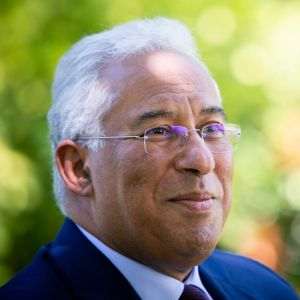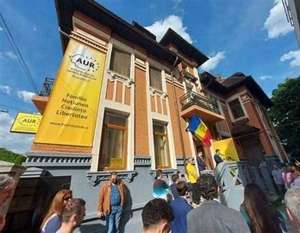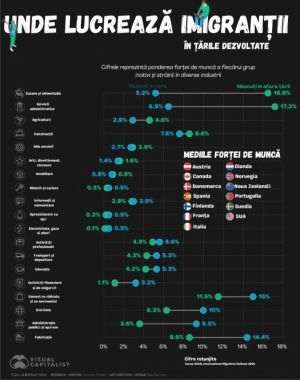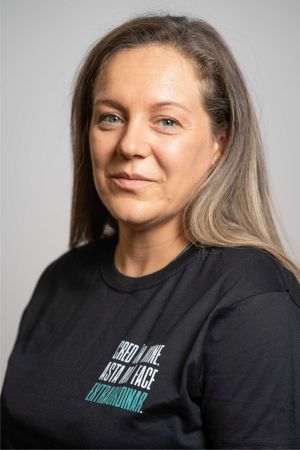• Sorin Ovidiu Vântu used a circuit similar to the one he used to send money to his former associate Nicolae Popa to reward the top managers of his media group
• Sergiu Toader, the head of the Realitatea Group, earned an additional 90,000 Euros a year through an offshore company located in Cyprus
• According to the transcripts published in the newspapers, Sergiu Toader promised Sorin Ovidiu Vîntu that he would turn Realitatea into an organization that would answer to the orders of the latter exclusively, in grave violation of constitutional procedures
The financial methods used by Sorin Ovidiu Vîntu, one of the largest Romanian users of tax havens, were mimicked by the heads of his Realitatea TV trust.
A financial circuit similar to that used by Vîntu to send money to Nicolae Popa was also used to pay his top managers of Realitatea TV.
And the amounts are just as big, if not bigger (in some cases) than the ones paid by Vîntu to Nicolae Popa, his main right-hand man over the years.
Sergiu Toader, the real manager of the Realitatea Media group, would received an additional monthly commission of 7500 Euros, through the company Rovinga Limited of Cyprus.
According to our information, the contract signed between the Cypriot company, controlled by Sergiu Toader and Realitatea TV, lasted between 2007 and 2010, during which time the general manager of Realitatea earned over 250,000 Euros from those commissions alone, on top of his other compensation packages.
"Off-shore" companies are generally used to minimize taxes, as well as to conceal the identity of their owners.
Thus, wages and royalty payments which were legally registered in Romania, were not the only sources of income for the heads of the Realitatea group, who have lately become central figures in the case that the prosecutors are building against their boss, Sorin Ovidiu Vîntu.
Vîntu was buying the conscience of his managers through secret commissions paid via Cyprus, using the same route that he used to send money to his friend Nicolae Popa, for which he is now being indicted by the prosecutors.
The toxic relationship between Vîntu and the managers of his company and some of the journalists of the Realitatea group surfaced after the publication of the transcripts of the SOV-Nicolae Popa case, and this could spark the greatest scandal involving the Romanian media industry of the last twenty years, which could dramatically affect its credibility.
The master/servant relationship between Sorin Ovidiu Vântu and his managers in fact revolved around large amounts of money. The relationship between Vântu and his subordinates (managers and journalists) was based on a simple formula: paying them lots of money to silence their conscience.
Prosecutors are accusing Vântu of having supported the fugitive Nicolae Popa, who had received a 15 year sentence for being involved in the crash of the FNI (National Investment Fund) and FNA. Popa fled Romania in 2000, soon after the FNI scandal broke out, and went into hiding in Indonesia, a country with which Romania had no extradition treaty.
The amounts that Sergiu Toader allegedly won in just a few years are mind boggling compared to the standards of the Romanian media, amounting to millions of Euros.
Our sources claim that Sergiu Toader had the largest compensation package in the entire Realitatea-Caţavencu trust, including a yearly extended leave, paid with tens of thousands of Euros.
• The "off-shore" connection
The Cypriot company owned by Sergiu Toader had another Cypriot company as registrar and administrator - Oxford Management Ltd. of Limassol, the one which was used to issue the invoices on behalf of Toader"s company to Realitatea TV.
Oxford Management has been present in Romania for five years, operating through the company Oxford Management SRL Bucureşti, and its administrator for Romania is Cypriot citizen Chrysantos Fouttis.
The account of Toader"s firm was handled by another Cypriot - Irene Theocharous, who issued the invoices, which it then sent to the wife of Toader, Dana Frăţilă.
• The investigation of the ANAF
In December 2009, the Romanian Tax Administration (ANAF) began a comprehensive investigation on the payments made by the Realitatea group, in order to investigate where the money from the sale of Petromservice to OMV Petrom went.
ANAF claims that the state was supposed to collect
62 million Euros in VAT for that deal.
Petromservice initially paid that amount to the state, but the Ministry of Finance later reimbursed it.
The complicated web of contracts inside the Realitatea Group, including those used for paying the compensation of the major journalists and managers, were investigated for seven months by the ANAF, but so far these investigations seems to have yielded no results.
In turn, several former higher managers of Petromservice were arrested for other offenses, and Sorin Ovidiu Vîntu is being arraigned for aiding and abetting the offender Nicolae Popa.
The General Prosecutor, Laura Codruţa Kovesi, last week stated that Sorin Ovidiu Vântu is being charged with several criminal offenses, which include money laundering.
This could be a confirmation of the rumors that were being bandied around, which claimed that the DIICOT (Department for the Investigation of Organized Crime and Terrorism) was running its own investigation, at the same time with the Tax Administration.
• The transcript of the conversation between SOV and Sergiu TOADER
The probe of the ANAF at Realitatea TV began on the aftermath of the second round of the presidential election. Upset, Vântu changed the tune of its own media group, having apparently decided to change his attitude toward any journalists employed by him that would dare to do their job in a fair manner, if that didn"t serve his purposes.
The conversation on the phone between Vîntu and Sergiu Toader, in which the latter assured his boss that he would create an organization that would obey him and serve his interests unquestioningly is speaks of itself. We hereinafter present the conversation between the two, in the form that was presented in the newspapers, after the case went to court.
S. O. VÎNTU: I don"t manipulate people; people need to see this for what it is: "it is Vîntu"s organization and it answers to his orders".
S. TOADER: That is what I want to tell them.
S. O. VÎNTU: Correct.
S. TOADER: Because otherwise, I don"t know how this is going to work.
S. O. VÎNTU: But I don"t want anything else, I"m not interested in sending the wrong message, in other words I don"t want them to get the idea that: Hey, you can do whatever you please!
S. TOADER: No, no.
S. O. VÎNTU: You"re not free, people. You agree with that, you get to work, if you don"t, you take a hike, what the fuck!
S. TOADER: That"s what I wanted to tell you, when I"m going back in there, in my office, because that what you asked me to do, fuck it if I won"t. I mean really, if you need that, I guarantee it, everything will be just like clockwork, very efficient.
S. O. VÎNTU: Yes, old man, that"s what I need, a very efficient structure, which will react to the orders it receives. Nothing else. That"s what I"m trying to do...We"re finally clear on that! But this needs to be made clear to everyone, you"re OK with this, you stay, you"re not, you leave. I"m not trying to manipulate or fool anybody, I am very fair. I"m generally fair to people.
• The trampling of the Constitution
The way that Vîntu and his manager, Sergiu Toader, agreed to structure the group, by using an editorial policy that would serve their interests alone, through an editorial policy that would only serve the interest of the owner, gravely violates the provisions of the Constitution, which we present below.
• ARTICLE 30
(1) The freedom to express thoughts, opinions or beliefs of any type, either orally, in writing, via audio or other mass-media is inviolable.
(2) Censorship of any kind is prohibited.
(3) Freedom of the press involves the freedom to create publications.
(4) No publication may be suppressed.
(5) Mass media institutions may be required by law to disclose their financing sources.
(...)
• Right to access information ARTICLE 31
(1) The right of the individuals to access any information of public interest may not be restricted.
(2) The public authorities, based on their roles, are required to ensure the correct information of citizens on matters which are of public and personal interest to the former.
(3) The right to access information must not harm the protection of the youth or pose a threat to national security.
(4) Private and state owned mass media institutions are required to ensure the correct information of the public.
(5) The public radio and TV stations are independent. They need to provide airtime to major social and political groups. The organization of these services and the parliamentary control over their activity will be regulated by the Constitution.





























































